Imágenes de la celebración del VIII seminario de equipamientos en el CENEAM, del 2 - 4 de noviembre de 2011
Imágenes de la celebración del VIII seminario de equipamientos en el CENEAM, del 2 - 4 de noviembre de 2011
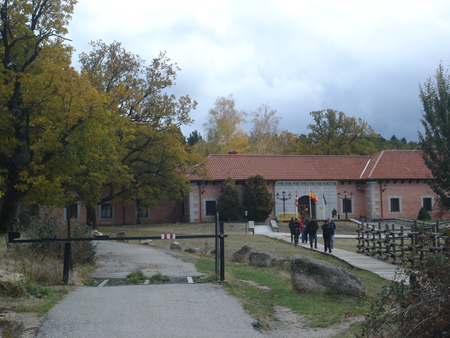 Participantes en el seminario saliendo del CENEAM
Participantes en el seminario saliendo del CENEAM
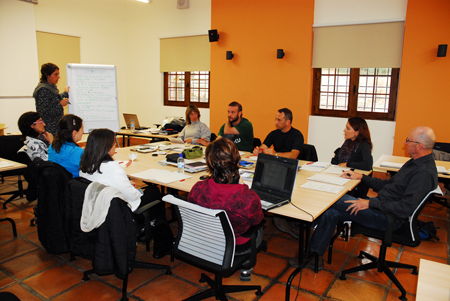 Grupo de trabajo realizando una sesión
Grupo de trabajo realizando una sesión
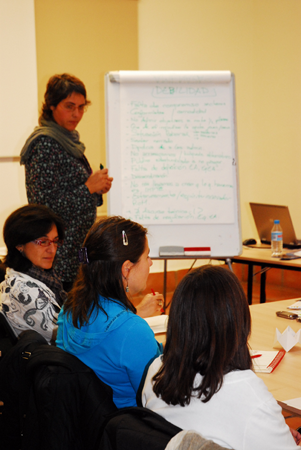 Presentación de los resultados de una sesión de trabajo en el papelógrafo
Presentación de los resultados de una sesión de trabajo en el papelógrafo
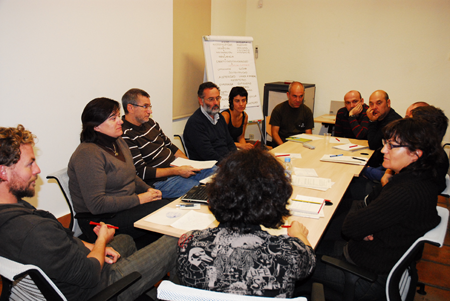 Participantes en el seminario durante una sesión de debate
Participantes en el seminario durante una sesión de debate
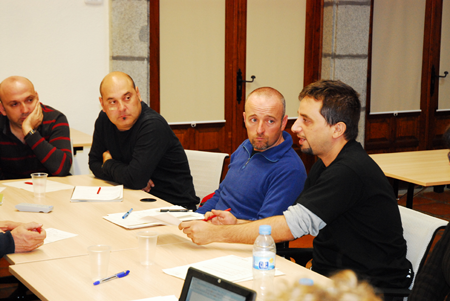 Un participante expone su opinión en una sesión de trabajo
Un participante expone su opinión en una sesión de trabajo
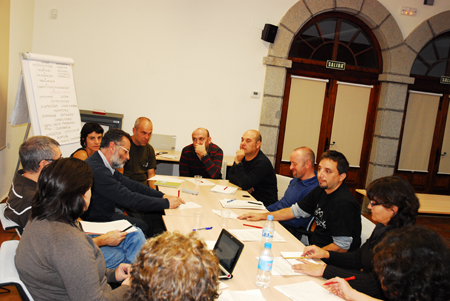 Debate del grupo de participantes
Debate del grupo de participantes
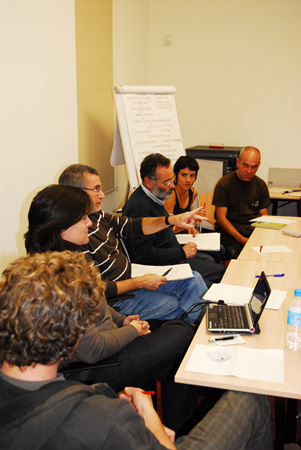 Exposición de un participante en un grupo de discusión
Exposición de un participante en un grupo de discusión
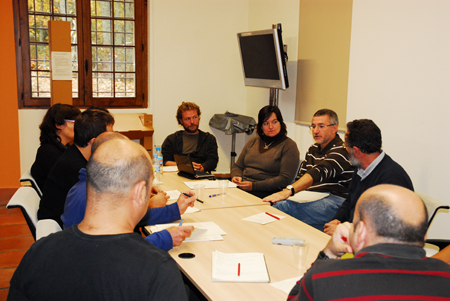 Los participantes debanten para la elaboración de conclusiones
Los participantes debanten para la elaboración de conclusiones
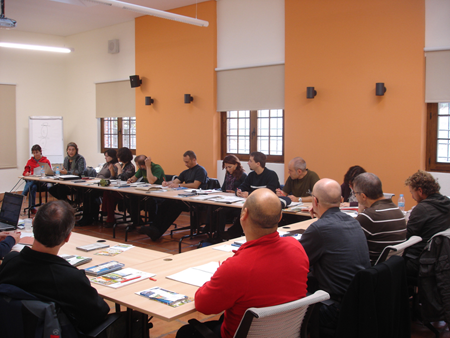 Sesión de trabajo en el seminario
Sesión de trabajo en el seminario
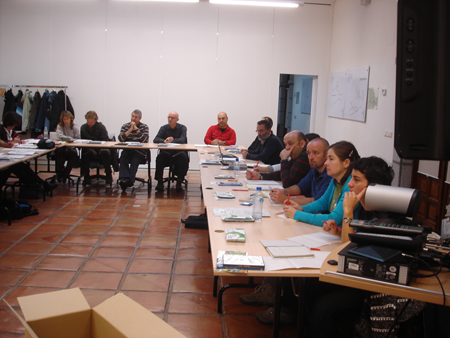 Presentación de la situación de las CCAA por los participantes
Presentación de la situación de las CCAA por los participantes
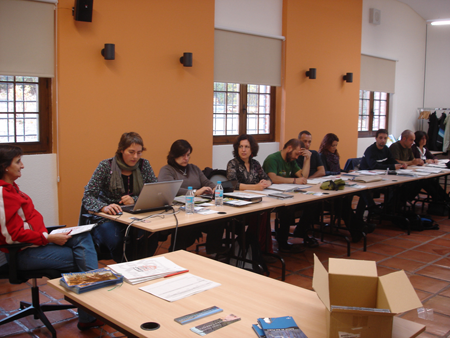 Los participantes del seminario toman notas sobre la situación de los equipamientos en las CCAA
Los participantes del seminario toman notas sobre la situación de los equipamientos en las CCAA
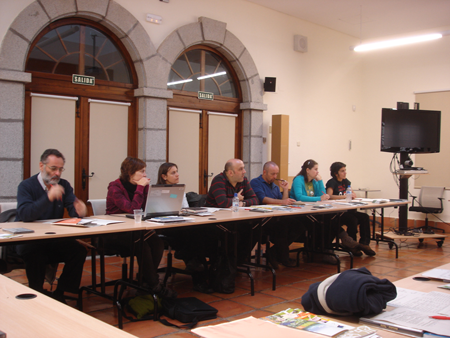 Exposición del un participante sobre la situación de su Comunidad Autónoma
Exposición del un participante sobre la situación de su Comunidad Autónoma
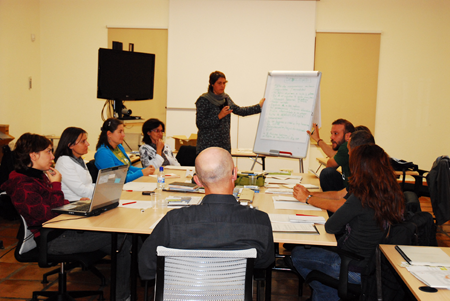 Una participante toma nota en el papelógrafo de los resultados de una dinámica participativa
Una participante toma nota en el papelógrafo de los resultados de una dinámica participativa
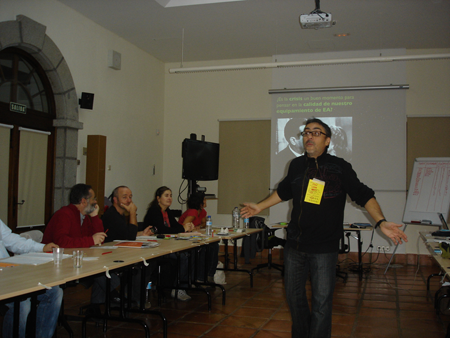 Un participante dinamiza el taller sobre calidad en los equipamientos de educación ambiental
Un participante dinamiza el taller sobre calidad en los equipamientos de educación ambiental
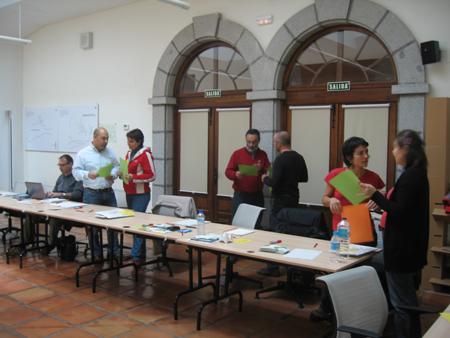 Taller sobre calidad en equipamientos de educación ambiental
Taller sobre calidad en equipamientos de educación ambiental
 Dinámica de trabajo sobre calidad en equipamientos de educación ambiental
Dinámica de trabajo sobre calidad en equipamientos de educación ambiental
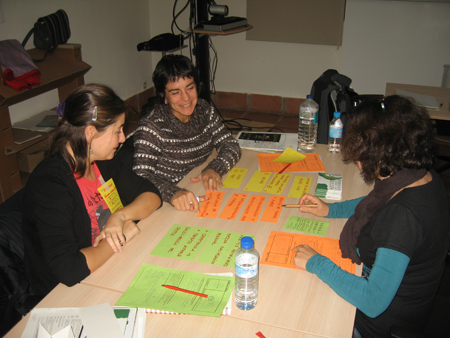 Conclusiones de los grupos de trabajo
Conclusiones de los grupos de trabajo
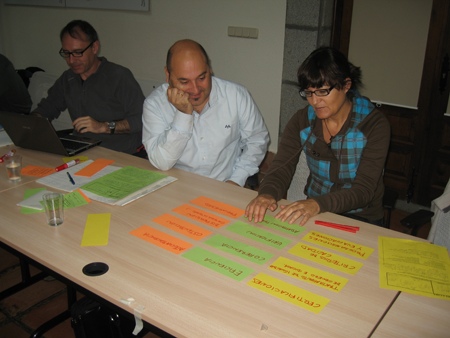 Preparando las conclusiones del taller
Preparando las conclusiones del taller
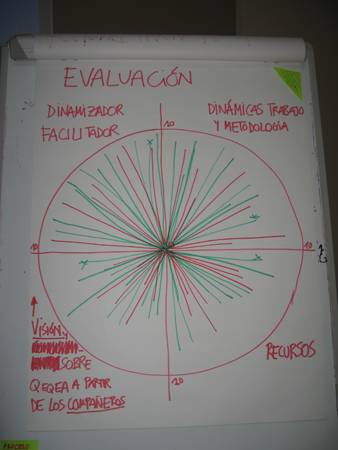 Evaluación del taller
Evaluación del taller
This page provides information on cookies we use: We use our own and third-party cookies to keep your session active, personalise your experience, and collect anonymous statistics about how you use this website. You can choose to accept all cookies or select which types you'd like to allow. To learn more about the cookies we use, read our Cookies Policy.
We use two types of cookies on this site. First, there are Functional Cookies, which are essential for the website to work properly. They store session data to make your experience smoother and more convenient. On the other hand, Analytical Cookies collect information about how you use the portal, without personal data, helping us provide a better and more tailored service.
Introduction to the Use of Cookies on the MITECO.gob.es Website
Cookies are small files that are stored on your device when you visit a webpage. They are essential tools that help provide many of the services available on the information society. Among other things, cookies allow a webpage to store and retrieve information about a user's browsing habits or their device. Based on this information, they can be used to recognise the user and enhance the service provided.
Types of Cookies
Depending on the entity that manages the domain from which the cookies are sent and processes the data, there are two types of cookies: first-party cookies and third-party cookies.
There is also a second classification based on how long the cookies remain stored in the user's browser: session cookies and persistent cookies.
Finally, cookies can also be classified into five types based on the purpose for which the data is processed: technical cookies, personalisation cookies, analytics cookies, advertising cookies, and behavioural advertising cookies.
For more information on this, you can refer to the Guide on the use of cookies from the Spanish Data Protection Agency.
Cookies used on the website
The web portal of the Ministry for Ecological Transition and the Demographic Challenge uses Adobe Analytics, an analytics tool that helps website and application owners understand how visitors interact with their content. Adobe Analytics uses a small number of cookies to collect data and generate usage statistics for websites. This information is sent anonymously and is not shared with third parties under any circumstances. You can choose to accept or reject these cookies, as they do not affect the portal’s functionality. However, they help provide valuable information that allows us to offer a better and more tailored service. For more information about Adobe Analytics cookies and privacy, please refer to the following links:
Additionally, pages featuring content from social network X will only set cookies if the user is logged into the X site. For more details on these cookies, please refer to the following link: Privacy on Social Network X
Finally, a technical cookie named MITECO-compliance is stored, which is a first-party, technical, and session-based cookie. It manages user consent for the use of cookies on the website, remembering which users have accepted them and which have not, ensuring that those who have accepted are not shown cookie consent messages at the top of the page. This cookie is essential for the proper functioning of the portal.
Cookies Policy Acceptance / Rejection
The Ministry for Ecological Transition and the Demographic Challenge gives you the option to accept or reject cookies that are not essential for the portal's operation. Upon accessing the portal, a message will be displayed in the centre of the page with information about the cookie policy and the following options:
· Firefox
· Chrome
· Safari